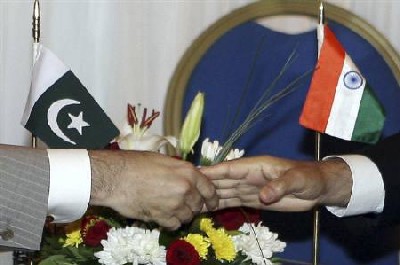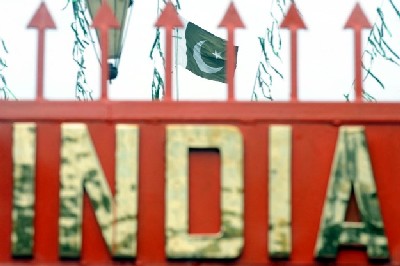 | « Back to article | Print this article |
How will the MFN status help India and Pakistan?
After several years of dilly-dallying, Pakistan has finally decided to grant the most favoured nation (MFN) status to India.
What is interesting is that press reports quoting Pakistani Foreign Minister Hina Rabbani Khar state that the decision was taken unanimously by the Pakistan cabinet. India had granted MFN status to Pakistan in 1996.
New Delhi and Islamabad have, in the recent past, taken many positive steps to make bilateral relations cordial. For instance, the two countries have firmed up a draft bilateral visa agreement that will ease travel between the two countries.
The draft agreement envisages multiple entry visas for traders and businessmen between the two countries. This is expected to be ratified by the two sides soon.
Click NEXT to read more...
How will the MFN status help India and Pakistan?
The two countries have also agreed to increase bilateral trade in a big way in the coming months. At present, bilateral trade is at $5 billion of which only about $2.7 billion is reportedly through direct trade.
The first impact of the MFN status for India would mean that the current indirect trade would now get converted into direct trade flows between the two countries.
Further, it will provide a great impetus to trade since Pakistan will only have a negative list of imports from India. It will now be important to ensure that the negative list remains small and only covers products that are genuinely vulnerable.
The other steps in confidence-building that have been taken by India include not opposing the entry of Pakistan as a non-permanent member of the Security Council and also allowing the European Union to provide duty-free access to Pakistan textiles, which has hit Indian exports to some extent.
How will the MFN status help India and Pakistan?
Industry on both sides is expected to benefit from this move. This would also help make the South Asian Free Trade Agreement (SAFTA) more relevant.
The agreement, which was signed in January 2004 and came into effect in 2006, has not been of much significance in terms of trade growth for the region since two important members - India and Pakistan - have not enjoyed normal trade relations owing to the absence of MFN from Pakistan for India.
But, now, this platform can be made more worthwhile if business looks at building value chains across the South Asian nations.
Although, given the political tensions in the region, companies may be reluctant to walk into large intra-Saarc investments for the time being, the MFN can be a shot in the arm for political leaders to get business to start working together for the benefit of the 1.6 billion people in the region.
Click NEXT to read more...
How will the MFN status help India and Pakistan?
The sectors in which horizontal value chains with vertical specialisation can be developed include textiles and clothing, chemicals, and processed food, among others.
The meeting that is slated between the two sides this month is expected to provide a tremendous push to bilateral trade flows that, hopefully, will also lead to greater cross-border investment.
As of today, large firms are not really a part of the trade between the two countries. For trade and investment to become meaningful, we will need a lot more large and medium-sized firms to start looking at building greater partnerships across the border.
Click NEXT to read more...
How will the MFN status help India and Pakistan?
Industry associations like the Confederation of Indian Industry (CII) and the Federation of Indian Chambers of Commerce and Industry (Ficci) need to start pushing their counterparts in Pakistan to identify some low hanging fruit to build greater confidence among business, and to expand their markets and investment across the region.
However, given the fact that there seems to be lack of a strong equivalent to these Indian national industry associations in Pakistan, the two Indian industry chambers may need to look at sectoral and regional chambers in Pakistan to build the partnership.
There is also a need to set up institutions like CEO Forums to identify the next steps to build stronger partnerships.
Click NEXT to read more...
How will the MFN status help India and Pakistan?
Importantly, there is a need for setting up a SAARC CEO Forum now to ensure that companies look at the whole region for investment flows for building value chains.
A very important beginning to boost regional and bilateral trade has been taken. However, the negative list that Pakistan will have for India is still not clear.
But the positive signal that has been given by announcing the MFN status now needs to be responded by industry by increasing bilateral platforms and engagement to ensure that the two large countries move towards greater regional economic integration.
The author is Principal Adviser with APJ-SLG Law Offices





